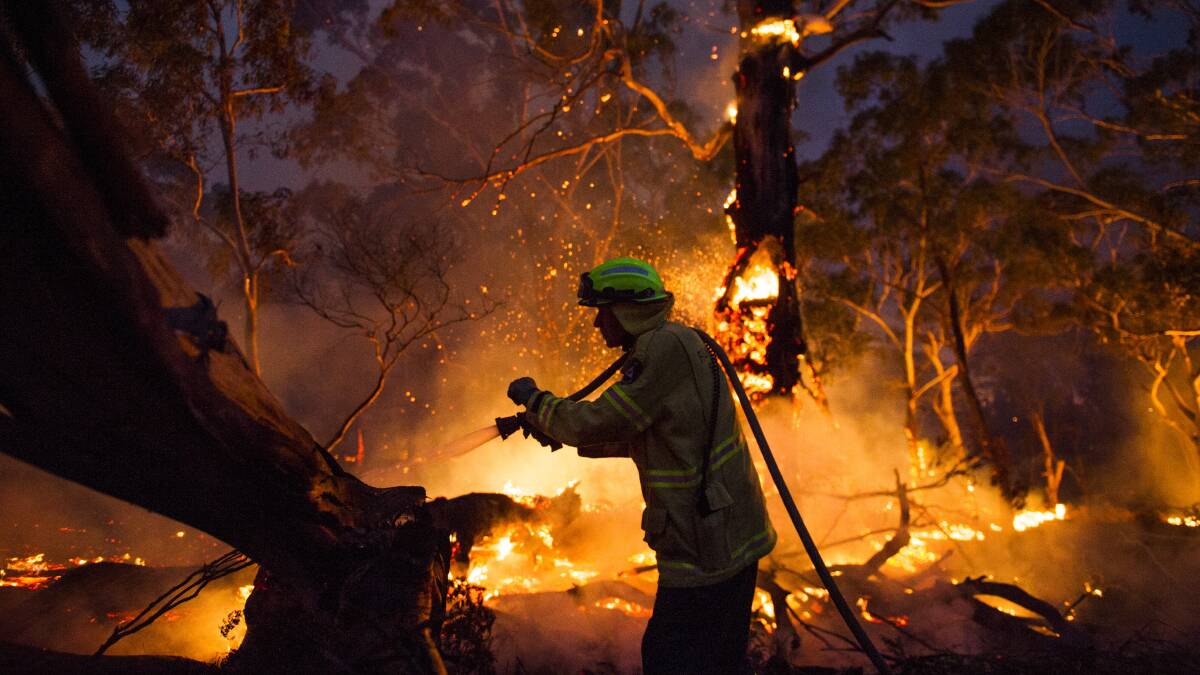
It is more than six months since last summer's apocalyptic bushfires, but the memories continue to haunt me.
Subscribe now for unlimited access.
or signup to continue reading
I am a general practitioner at Surf Beach, a little coastal town just south of Batemans Bay, one of so many parts of eastern Australia hit by the unprecedented bushfire season that saw thick plumes of smoke settle across the country for weeks.
A week into the new year I drove to work, the bush all around me as black as the asphalt road.
At the surgery that day, we had no power, phones or internet.
I saw psychologically distressed people, some in borrowed clothing, needing basic medical care and a sympathetic ear.
Many people, suffering from significant smoke exposure, were seeking medical advice for coughs, chest pains, sore throats, sore eyes, and difficulty breathing.
My colleague and I, with head torches for light, wrote notes and scripts by hand, listening, counselling and reassuring.
I will never forget my patients' stories of near misses, of desperately escaping the flames with their kids in tow.
Stories of recently completed dream homes burnt to the ground, of properties established over decades and precious animals, wildlife, orchards, businesses and special places, all gone.
As I drove home that day I cried, overwhelmed by the destruction, suffering and loss.
There is no denying that the task ahead is enormous. But COVID-19 has taught us many salient lessons. Respect science. Focus on prevention. Unite our communities. Work together.
Since then the recovery has been slow, and complicated by COVID-19.
The pandemic has many people in my community feeling even more vulnerable and socially isolated, while still more Australians have come to know the special fear that comes from having their health and wellbeing constantly threatened by external forces.
Climate change, like COVID-19, lays bare the underlying health inequalities that exist within our current systems, with the poorer and more marginalised being disproportionately impacted.
Intersecting crises multiply the impact further still.
The bushfire crisis was preceded by the devastating NSW drought.
Since the bushfires, we have had heavy rain and storms, causing flooding, erosion, fallen trees, landslides and polluted waterways.
And as I write this piece, my nearest town is facing evacuation from rising flood waters.
It is now clear to me and to my medical colleagues across Australia that we are amid two global health emergencies.
The COVID-19 pandemic has killed hundreds of thousands of people around the world and created untold disruption and misery, while climate change, caused largely by the burning of fossil fuels and deforestation, is driving more and more frequent and dangerous droughts, floods, storms and bushfires.
That is why every dollar the Australian government spends to stimulate the economy and get unemployed Australians back into work must also build individual and community resilience, tackle climate change and reduce social inequalities.
READ MORE:
It must aim to create the best world possible for our future generations.
There is no denying that the task ahead is enormous. But COVID-19 has taught us many salient lessons. Respect science. Focus on prevention. Unite our communities. Work together.
That is why I, along with more than three-quarters of this country's medical doctors, am urging Prime Minister Scott Morrison and his government to put the health of Australians first when choosing projects to fund as part of the economic recovery.
A healthy economic recovery would mean a quick transition away from the polluting fossil fuels, both coal and gas, which fuel climate change.
It would instead fund renewable energy projects, new public transport routes and walking and cycling paths that would generate thousands of new, well-paying jobs.
These infrastructure projects would open up new business opportunities and give us all cleaner air to breathe, while reducing Australia's greenhouse gas emissions and helping tackle climate change.
It is not often so many of the nation's doctors come together to ask the Australian government to change tack, but we recognise that this country has a unique, once-in-a-lifetime opportunity to create a different future.
We need to put the health of Australians first when choosing how to rebuild our economy, so that bushfire-ravaged communities like mine can welcome 2021 with a lot more hope.
- Dr Michelle Hamrosi is a general practitioner who lives and works on the NSW South Coast. She is a member of Doctors for the Environment Australia.

